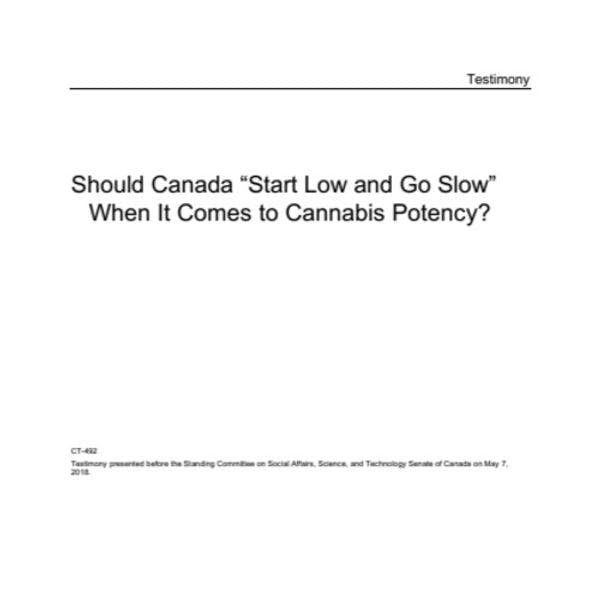Should Canada "start low and go slow" when it comes to cannabis potency?
By Beau Kilmer
Chairperson Eggleton, Deputy Chairperson Petitclerc, Deputy Chairperson Seidman, and other distinguished members of the Standing Committee on Social Affairs, Science, and Technology, thank you very much for the opportunity to testify before you today. I am a senior policy researcher at the RAND Corporation, where I co-direct the Drug Policy Research Center. I have studied cannabis policy for more than 15 years, and my cannabis research has been published in leading journals, such as Addiction, American Journal of Public Health, and New England Journal of Medicine. In 2016, I co-authored a book on cannabis legalization that was published by Oxford University Press.
Over the past two years, I have been fortunate enough to travel to Canada multiple times to meet with researchers and policymakers about cannabis policy and provide an objective assessment of cannabis legalization in the United States. Today, I will focus my remarks on the issue of cannabis potency. RAND does not have a formal position on cannabis policy, and it does not advocate for or against legislative bills or ballot initiatives. My goal for today is to help inform cannabis policy debates at the federal, provincial, and local levels.
A common warning for those consuming cannabis edibles—especially new users—is to “start low and go slow” to prevent overconsumption of δ-9-tetrahydrocannabinol (THC), the cannabinoid most responsible for intoxication. Today, I would like to raise the question about whether this approach should also be applied when considering the potency of cannabis products to be sold in Canada’s nonmedical market should C-45 become law.3 With a “start low and go slow” approach, regulations may start with a smaller range of legal activities and products and a tighter set of rules, allowing regulators and other decisionmakers the option to relax them over time.
Downloads
Topics
Regions
Related Profiles
- RAND Corporation
